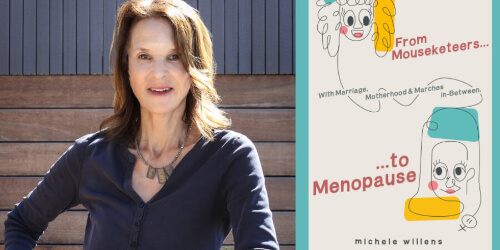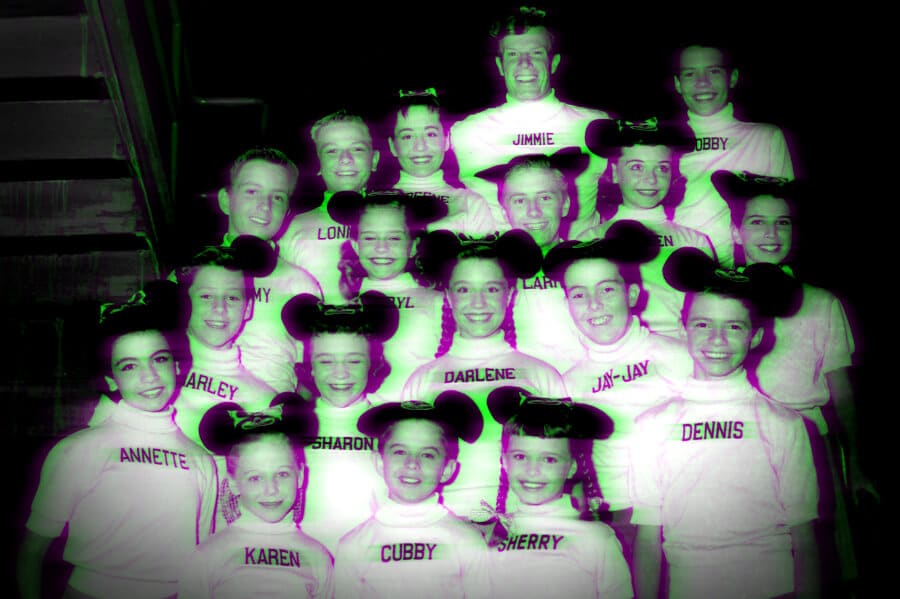My first published essay appeared on the final Sunday of 1969. One night, I quickly jotted down my thoughts about that tumultuous decade. My father knew someone at the Los Angeles Times, and the next thing I knew, I was the Op-Ed’s featured piece. Called “A Child of the Sixties: From Mouseketeers to McCarthy,” it garnered a lot of attention and made me a symbolic star of the young set—well, until Joyce Maynard came along with her cover story in the New York Times Magazine.
We’re talking with Michele tonight, Feb. 24th. To save your spot, click here.
When I read that piece today, it feels terribly sad and oddly prescient. “I have been playfully loved by a black boy. Ten years later, I am hated by the same man: not because I am me but because if am white.” Like so many others, I was inspired by Joan Didion’s sparse, powerful—and personal—words. Could I do that too? Could I do that again?
The truth is, after my first fifteen minutes of fame, I left the “essay” world and spent the following decades reporting on entertainment, culture, and politics. (My current beat is theatre for an NPR affiliate.) Looking back at the many pieces I wrote for Huffington Post and others, I realized they had again become more personal. My second fifteen minutes, by the way, was a New York Times opinion piece about the challenges of now being the oldest person in most rooms. “Rather than going gently into mentor mode I have entered the Extreme Sport of the Boomer Challenge, returning to college after 40 gap years. But how many people have both student and senior IDs?”
Read More: Publishing a Debut Novel Later in Life: Here’s How One Woman Did It
A Father’s Influence

NextTribe will be talking to Michele Willens tonight at a free virtual event. 6:30 pm ET, 3:30 pm PT. Click here to save your spot.
Over the years, people have encouraged me to combine those pieces into a collection. When I applied to—and was accepted by—the American Academy of Rome a few years back, it was to do that exact thing. The process became about selecting which essays to include, putting them in chapters, and getting the blurbs. (Thank you, Judith Viorst and Jonathan Alter among others.) Now, the result has arrived, called From Mouseketeers to Menopause. I resist calling it a memoir. Though the experience did–almost accidentally—allow me to accomplish several things.
For example, I have always been encouraged to write a book about my father, a self-made businessman who was an important philanthropic/political figure in Los Angeles and beyond. I realize now that my book is filled with him: particularly in the Travel chapter, discussing my unique visits to China (published in Next Tribe) and the Soviet Union.
Rather than going gently into mentor mode I have entered the Extreme Sport of the Boomer Challenge, returning to college after 40 gap years.
Because of my dad’s work, and a man who had an old friend from Brooklyn who’d been living in China since the War, my parents and I were invited there in 1973. (Our connector wrote a letter addressed to “Sidney Shapiro, Peking, China and it was received!) When I traveled to the Soviet Union a few years back, and found myself at the Gorbachev Foundation, I reminded them that my father and another Los Angeles businessman had gone there to turn a weapons factory into a children’s clothing store.
In my “Death and Dying” chapter, I have an essay about Paul Newman, written upon his death. He and my dad fought many fights together, and I couldn’t resist recounting the day we all had lunch at the Beverly Hills Tennis Club, when Newman insisted on making the dressing for my salad.
A Dual Allegiance
The collection is also a way to reflect on my dual allegiance, having grown up in L.A. but now primarily living on the other coast. “In New York, 9/11 remains the bond that does not bend, but I have remained bi-loyal: rooting for the Dodgers and the Yankees, the changing of the seasons and the relentless sunshine.” In L.A. is where I experienced so many special, transformative moments.
A two-character play was based on a NextTribe essay about my relationship with my remarkable aunt.
Among those moments was when I dragged my friend, singer Lori Lieberman, in 1971 to hear Don McLean at the Troubadour. That night led to the writing of “Killing Me Softly With His Song.” The moments have continued. A two-character play, done by the Skylight Theatre last year in Los Feliz, was based on an essay (published here at Next Tribe) about my relationship with my remarkable aunt, who died last year at the age of 96.
Why the Mouseketeer thing, you might ask? My mother one day pulled me off my brothers’ sports fields and placed me in front of the TV. “Why can’t you watch this show like every other girl in America”? she asked. It was ‘The Mickey Mouse Club” and to say I became an instant, ardent fan is an understatement. Am I still that “child of the sixties” who lamented about witnessing so many sad changes? Well. I just wrote a piece about a man of color who received clemency after spending 23 years in prison for a crime he did not commit. That man has now become my friend.
Far from a child anymore, I am still using the written word to try to make a difference.
Read More: A 92-Year-Old Filmmaker’s 5 Secrets to a Long and Fascinating Life





















0 Comments